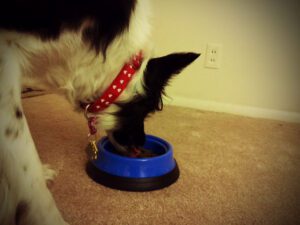Who over the last 5-10 years hasn’t been on or met someone who was on a gluten-free diet? Diet fads always come and go in the human world with new ones cropping up, it seems, multiple times a year. Some people have legitimate allergies and dietary needs that require them to be on one of these diets, while others feel better and have more energy when on them. One thing we do know is that companies that market our food know that the gluten-free industry is bringing in a lot of money and that people are demanding more options where their dietary needs are concerned.
Enough about human diets — what about our dogs? One important thing to remember is that dogs, while optimized to eat meat, have adapted to an omnivorous diet: they eat and can utilize both meat and vegetation. Both of these are a source of nutrients and promote health when consumed in a balanced diet. Another thing to recognize is that there are some dogs who do have allergic reactions or intolerances to food. “There is a very small percentage of dogs that have food intolerances (or food allergies), but having said that, dogs of different heritage, work, lifestyle, etc, will do better on some diets versus others,” says Dr. Cheryl Smith, DVM.
Dogs that have food intolerances or allergies can have a variety of problems. Some symptoms, Dr. Smith explains, can be intermittent to chronic diarrhea, itchy skin (often around the ears), poor skin condition, poor overall body condition (too thin or too fat), intermittent to chronic vomiting, and perianal fistulas, to name a few. If your dog is displaying any of these symptoms, please talk to your vet. There is a chance (relatively small) that it could be a food intolerance or allergy. Please also keep in mind that the dog food industry is a big business whose aim is not only to promote pet health, but also to make money, and fad diets have always been good business.
Recent Posts
About Us
Ann Arbor Animal Hospital is a locally-owned animal hospital operating for over 90 years in Ann Arbor, MI.
